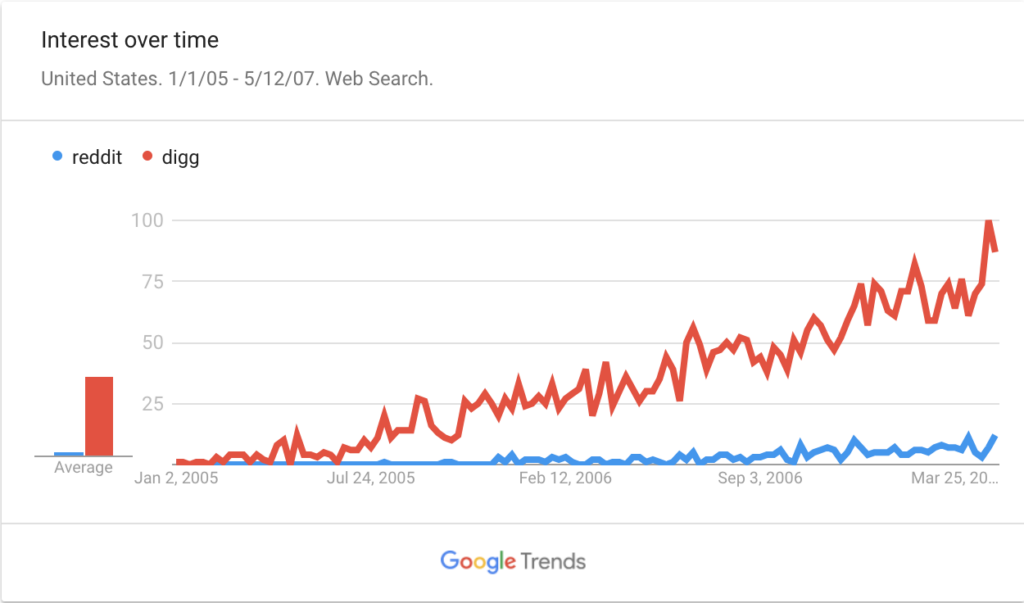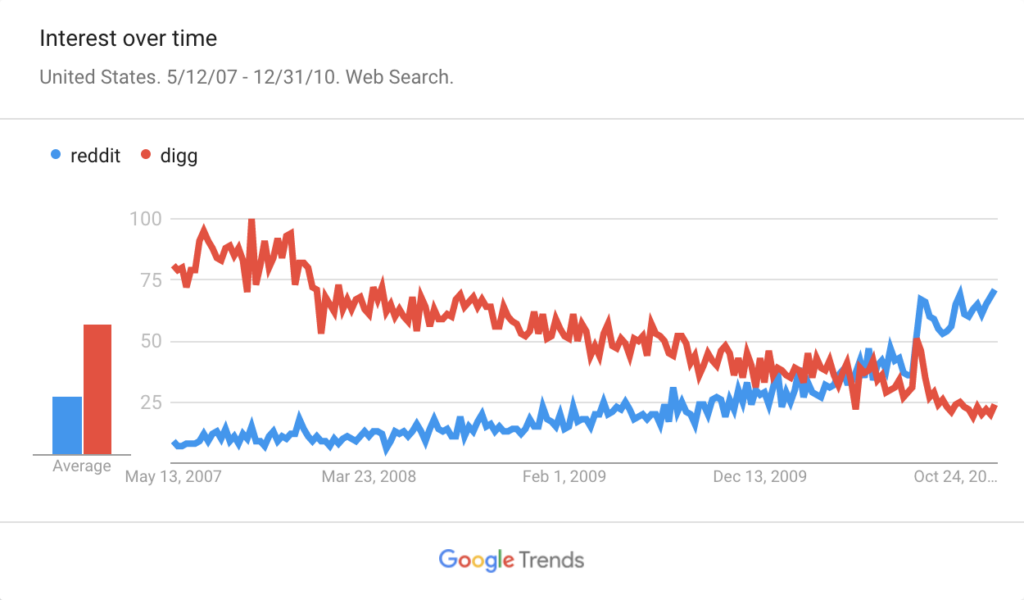Frequently, products achieve popularity out of nowhere. People don’t realize why or how a product got so popular, but it did. Now, much of the time, this is from years of hard work no one ever saw. As our co-founder at GrubHub put it, “we were an overnight success seven years in the making.” But sometimes, it really just does happen without people, inside or outside the company, knowing why. Especially with social products, sometimes things just take off. When you’re in one of these situations, you can do a couple of things to your product: not change it until you understand why it’s successful now, or try to harness what you understand into something better that fits your vision. This second approach can be a killer for startups, and I’ve seen it happen multiple times.
Let’s take two examples in the same space: Reddit and Digg. Both launched within six months of each other with missions to curate the best stories across the internet. Both became popular in sensational, but somewhat different ways, but Digg was clearly in breakout mode.

What happened after the end of that graph is a pretty interesting AB test. Digg kept changing things up, launching redesigns and changing policies. Some of these might have been experiments that showed positive metric increases even. Reddit kept the same design and the same features, allowing new “features” to come from the community via subreddits, like AMA. By the launch of Digg’s major redesign in August of 2010 (intended to take on elements from Twitter), Reddit exploded ahead of Digg.

This is what the long term result of these two strategies look like. Digg is a footnote of the internet, and Reddit is now a major force.
Now, neither of these companies are ideal scenarios. The best option in the situations these companies found themselves in is to deeply understand the value their product provides and to which customers, and to completely devote your team to increasing and expanding that value over time. But, if you can’t figure out exactly why something is working, it is better to do nothing then to start messing with your product in a way that may adversely affect the user experience. This has become one of my unintuitive laws of startups: if ain’t fixed, don’t break it. If you don’t know why something is working (meaning it’s fixed and not a variable), do nothing else but explore why the ecosystem works, and don’t change it until you do. If you can’t figure it out, it’s better to change nothing like Reddit and Craigslist than to take a shot in the dark like Digg.
Currently listening to Sisters by Odd Nosdam.